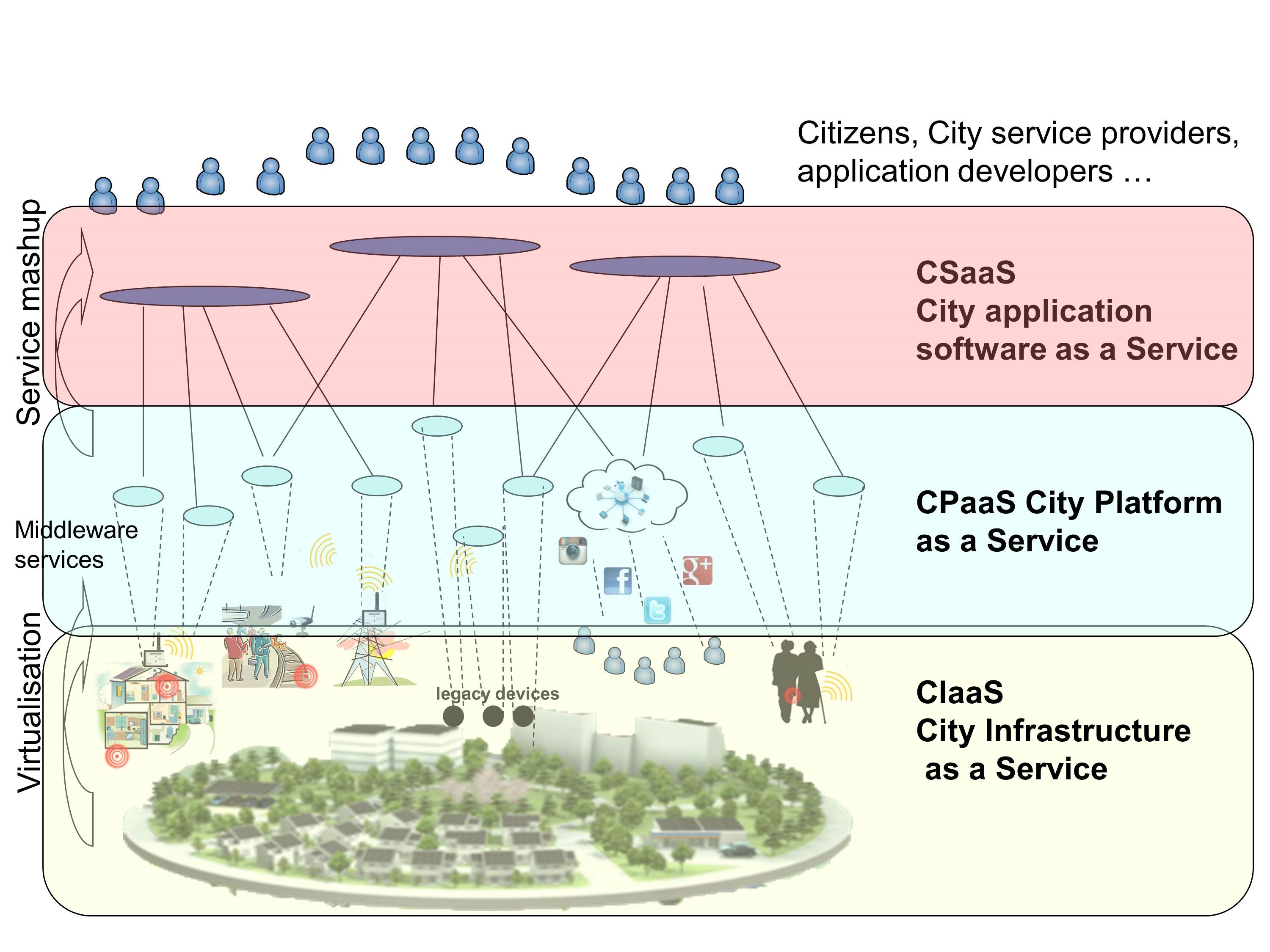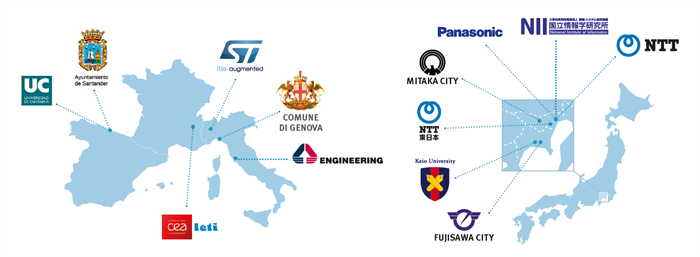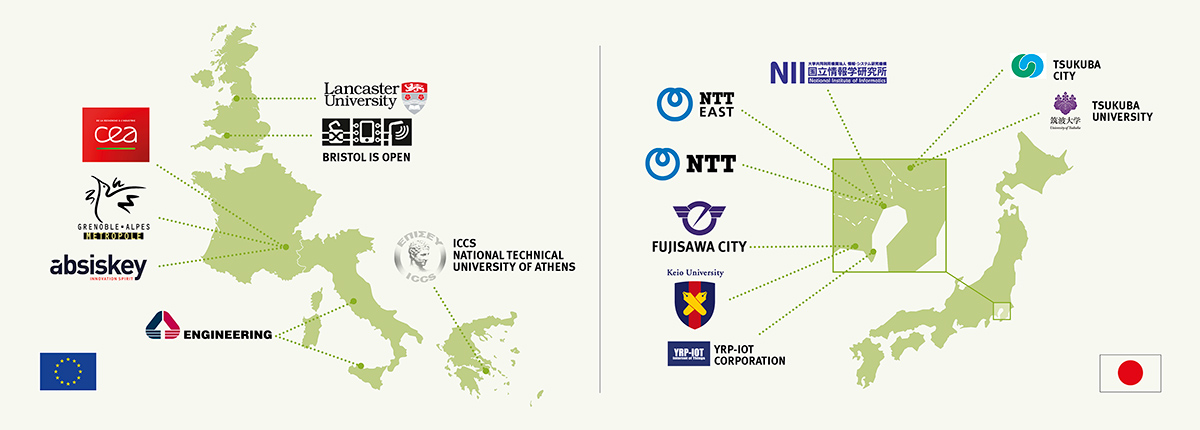Helping cities become smarter
Smart cities are a new vision for urban development. They integrate information and communication technology infrastructures – in the domains of artificial intelligence, distributed and cloud computing, and sensor networks – into a city, to increase the quality of life for its citizens and to foster sustainable growth.
Facing these new possibilities, citizens have to be in capacity to create and manage their own cloud services and share them with other citizens. That is why the ClouT collaboration, coordinated by CEA, has been willing to help cities facing the emerging challenges such as efficient energy management, economic growth and development, increasing citizen involvement. The ClouT project, namely “Cloud of Things for empowering the citizen clout in smart cities”, has been designed to integrate the latest advances technologies in a user-centric approach.

A scheme resuming ClouT concept and approach. © All rights reserved / ClouT project
To manage efficiently smart cities, ClouT developed an aggregative platform…
ClouT’s overall concept was leveraging the Cloud Computing as an enabler to bridge the Internet of Things (IoT) with Internet of People, via Internet of Services. ClouT developed infrastructure, services, tools and applications for municipalities and their various stakeholders – including citizens, service developers and application integrators – to create, deploy and manage user-centric applications that capitalize on the latest advances in two domains:
- The IoT, that allows users to connect “everything” (sensors, objects, actuators, mobile phones, servers, etc.) and gather and share information in real-time from the physical environment.
- Cloud computing, that let users process, store and access information with virtually unlimited processing and storage capacity.
Thus, the objective of the ClouT project was to establish an efficient communication and collaboration platform exploiting all possible information sources in a city (social networks, mobile phones, web pages, sensor nodes, etc.) to provide a quick and secured access to developers, allowing them to create innovative services and applications designed to improve the quality and safety of the everyday life for citizens.
This goal has been reached and experimentations, with the deployment of several services and applications, have been led in 4 pilot cities: Santander in Spain, Fujisawa and Mitaka in Japan, Genova in Italy.
The following video resumes the ambition of ClouT and presents concretely how a smart city could improve its citizen lives thanks to ClouT developments:
… that will be further improved in BigClouT
The ClouT project lasted from April 2013 to April 2016. It has been finalized with the congratulations of the European Commission and has even been rewarded in in the frame of the
“2016 French Awards ‘Stars for Europe’", which enhances the French teams conducting their research in European collaborative projects.
After the successful conclusion of
Clout, the H2020
BigClouT project, coordinated by CEA too, has just started to integrate Big Data emerging technologies into the platform and add new cities and partners in this extended program. The expanded program will focus on distributed intelligence with edge-computing principles, big-data analytics capability and self-aware property. It will be conducted in synergy with another Europe-Japon H2020 project,
FESTIVAL, also coordinated by CEA. On the basis of these works and in links with the European cooperation priorities with Japan, the stakeholders of BigClouT are building a worldwide strategic alliance in the field of open platforms for smart cities.
On ClouT project: |
From 2013 to 2016, this three-year international collaborative project was jointly funded by the European 7th Framework Program for the European partners (1.5 M€), as well as by the Japanese NICT (National Institute on ICTs) for the Japanese partners (1.5M€). |
The ClouT consortium is composed of 13 ClouT partners including pilot cities, leading European and Japanese industry as well as universities and research centers, experts in the area of IoT and cloud computing. ClouT's European participation was coordinated by Leti, an institute of CEA Tech.

|
On BigClouT project:
| Following validation of its innovative smart-city tools that combine Internet of Things and cloud-computing technologies, the EU-Japan ClouT consortium expands its goals and adds new cities and partners in the new BigClouT project, which will last from 2016 to 2019. The project is jointly funded by the European H2020 research Program for the European partners (1.35M €) as well as by the Japanese NICT for the Japanese partners (1.35 M€). |
New partners have joined the consortium (Lancaster University, National Technical University of Athens, Tsukuba University, YRP-IoT and Absiskey) whereas three new pilot cities are also involved (Grenoble-France, Tsukuba-Japan, Bristol-United Kingdom).

|